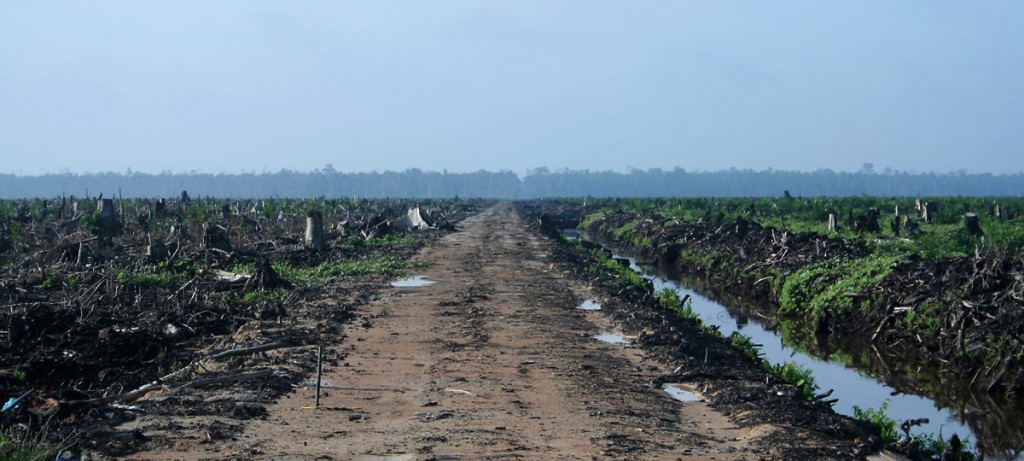On March 9, 2017, the European Parliament’s committee on environment and food safety released a report addressing the issue of palm oil related deforestation and its consequences for humans and the environment. Several stakeholders, namely committee rapporteur Kateřina Konečná of the GUE/NGL party, the Brussels-based NGO Transport & Environment (T&E), and the Greens and European Free Alliance (Greens/EFA), responded with press releases calling for various EU actions against palm oil.
Almost half of Europe’s palm oil consumption is transport-related and the burning of biodiesels produced with palm oils releases three times the emissions as traditional diesel.
Rapporteur Kateřina Konečná released the report along with comments on the committee’s outcome. She first discussed the direct consequences of palm oil, deforestation and soil erosion, then the ethical conflicts of forced labor and indigenous peoples’ rights. Her comments focused on the use of palm oil as a biofuel. Almost half of Europe’s palm oil consumption is transport-related and the burning of biodiesels produced with palm oils releases three times the emissions as traditional diesel. Konečná closed by calling on the Commission to “phase out” the EU’s consumption of palm oil, citing the Paris Agreement (COP21) and UN Sustainable Development Goals as further reasoning to take action.

Deforestation in Indonesia that was caused by palm oil farming. Source: Union of Concerned Scientists
Cristina Mestre, biofuels officer at T&E, expressed support for the Parliament Committee’s stance on palm oil and challenged the EU to go a step further to not only phase out biodiesels from palm oil, but all vegetables oils. Their research has shown that while palm oil has the worst emissions output that the total sum of burning any vegetable-based biofuels has emissions 80% higher than conventional diesels. Mestre concluded that:
“banning palm oil in biodiesel is not the solution because it will simply be replaced by rapeseed or soy which also produce higher emissions than regular diesel because of indirect impacts, the only real solution is to stop all incentives that artificially create demand for vegetable oils in the transport sector.”
The Greens/EFA urge the EU to stop “subsidies for biofuels produced from food crops, phasing-out such fuels and increasing taxation on unsustainably produced palm oil.” They argue that the substantial financial power of the EU should be used to curb corruption within the palm oil industry and move towards sustainably produced palm oils. The party then called for the European Commission to draft binding regulations on agricultural commodities and an even broader plan designed to combat deforestation and forest degradation.
